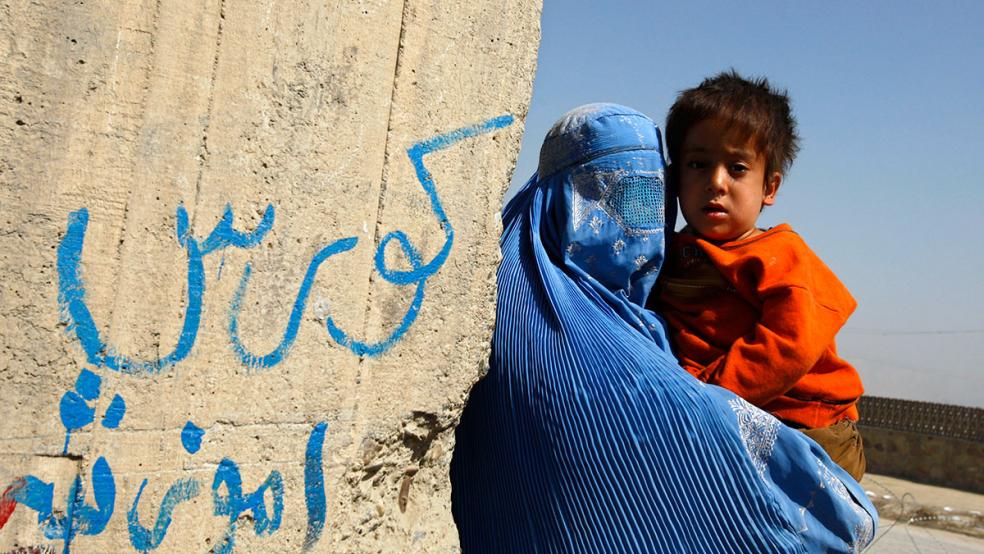The largest women’s empowerment program in U.S. government history is coming under scrutiny by auditors who are questioning whether the $400 million initiative is actually working.
The Promoting Gender Equity in National Priority Programs or (Promote) took effect last year, as part of the U.S.’s rebuilding efforts in Afghanistan. It’s intended to empower nearly 75,000 Afghan women between the ages of 18 to 30 to become political, business and civil service leaders. The program is also supposed to engage younger girls, ages 14 through 18—in leadership development programs.
Related: Agencies Don’t Know Which Women’s Programs Get Million in Afghanistan
Though the idea of Promote sounds promising, the Special Inspector General for Afghanistan Reconstruction is raising questions about its implementation and sustainability.
IG John Sopko expressed his concerns in a letter sent to USAID on Thursday, the agency in charge of the program: “SIGAR is concerned that some very basic programmatic issues remain unresolved and that the Afghan women engaged in the program may be left without any tangible benefit upon completion. SIGAR is also concerned about whether USAID will be able to effectively implement, monitor, and assess the impact of Promote.”
SIGAR isn’t alone in its concerns. Afghanistan’s new First Lady also recently expressed similar skepticism about the program meant to empower women in her country, according to the letter.
Related: $100 Billion in Aid Squandered in Afghanistan
“I do hope that we are not going to fall again into the game of contracting and sub-contracting and the routine of workshops and training sessions generating a lot of certificates on paper and little else,” said Afghan First Lady Rula Ghani, during a speech last November.
So far, USAID has committed about $216 million to fund the program, with an additional $200 million reportedly coming from other donors. Three main contractors are working on Promote—including Chemonics International, Development Alternatives, Inc., and Tetra Tech, Inc.
The auditors said since there is no “memoranda of understanding” between the contractors and USAID, it will be extremely difficult to track spending on the program.
For its part, the agency said it would be keeping close tabs on the program and others like it.
Related: How Many Agencies Does It Take to Change a Lightbulb?
“USAID has helped Afghan women achieve dramatic gains since 2001 through programs to improve maternal health, increase girls' education, and expand women's participation in the workforce and politics,” USAID Spokesperson Ben Edwards said in a statement.”
Building on this progress is critical to Afghanistan's future, which is why we worked closely with Afghan women, the Afghan government, and the private sector to design a gender program that will promote women leaders over the long term. As part of our commitment to results and accountability, we will apply robust oversight to all gender programs to ensure they are achieving their intended goals."
This isn’t the first time SIGAR has flagged the U.S.’s numerous efforts to empower women in Afghanistan. Late last year, the auditors released a report revealing that USAID, the State Department and the Defense Department couldn’t readily identify all of the various projects, programs and initiatives they’ve poured millions into to support Afghan women. The auditors also said the agencies had no way to track the programs’ progress.
“This lack of accountability is primarily due to the fact that none of the three agencies has effective mechanisms for tracking the funding associated with these projects,” SIGAR said in the report.
Related: 5 Most Egregious Examples of Government Waste This Year
The agencies, however, disputed the auditor’s findings –arguing that their programs have been successful.
“Over the last thirteen years, Afghan women and girls have achieved significant progress and it is important to accurately convey this to the American people,” USAID program coordinator Charles Randolph wrote in a response to the IG. “The progress is not accidental. Support to Afghan women and girls has been one of the key goals of the development community and our Afghan partners.”
A USAID official repeated Randolph’s sentiment in an interview with The Fiscal Times on Thursday—saying the agency has a system in place to monitor its programs’ effectiveness.
USAID plans to respond to SIGAR’s letter on the Promote program by April 11, the official said.
Top Reads from The Fiscal Times:





